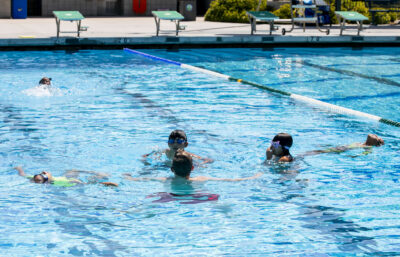
In private equity, continuous adaptation isn’t optional—it’s essential. Few business leaders understand this fundamental truth better than JP Conte, whose more than three-decade career has spanned multiple economic cycles, technological revolutions, and market paradigm shifts. Through his leadership in private equity, Conte has developed a distinctive philosophy of lifelong learning that extends beyond business strategy to become a core personal value.
Learning Beyond Institutional Education
While JP Conte holds degrees from prestigious institutions—Colgate University (1985) and Harvard Business School (1989)—his conception of learning extends far beyond formal educational environments. Throughout his career, starting at Chase Manhattan Bank in 1985 and continuing through his leadership at a private equity firm since the late 1990s, Conte has emphasized experience, mentorship, and practical wisdom as essential complements to academic knowledge.
“The most valuable learning happens outside the classroom,” Conte has observed when discussing professional development. “MBA programs provide frameworks and fundamentals, but true education comes from navigating complex situations with real-time variables.”
Leadership Transitions as Learning Laboratories
For Conte, significant learning opportunities often emerge during periods of transition. When he joined a private equity firm in 1995, he entered an established company with an existing culture and investment methodology. Within three years, he ascended into leadership, a transition requiring both adaptation to institutional norms and implementation of a fresh vision.
“Leadership transitions function as intensive master classes in organizational dynamics,” Conte has noted. “You must simultaneously respect institutional knowledge while introducing necessary changes—all while maintaining team cohesion and stakeholder confidence.”
This experience shaped his “family-first” management approach, emphasizing collaborative culture alongside performance excellence. The balance between continuity and innovation remains central to his leadership philosophy and illustrates how learning often involves reconciling seemingly opposed imperatives.
Conte’s launch of Lupine Crest Capital in March 2025 represents another learning transition—applying decades of private equity expertise to his new family office. He characterized this venture as “an exciting new avenue to continue my life’s work of helping companies achieve their full potential,” indicating how even after substantial success, he approaches new endeavors with a learning mindset.
Mentorship as Bidirectional Knowledge Exchange
Throughout his career, Conte has emphasized mentorship as a two-way learning process. Having benefited from mentors early in his professional life who helped bridge what he terms the “information gap” faced by first-generation professionals, he now considers mentoring students among “the most fulfilling experiences” of his career.
“The satisfaction derived from watching a young person grow into their potential far exceeds that derived from closing a deal or launching a new fund,” he has stated. This perspective reveals how Conte views mentorship not merely as guidance offered to others but as a relationship that deepens his own understanding.
In college, Conte experienced firsthand the challenges of navigating professional environments without many connections or vast institutional knowledge. His mentors provided crucial insight and advice that helped build his career path. Today, he works to close that same gap for others.
“When you explain concepts to others, you discover gaps in your own understanding,” Conte observes. “Questions mentees ask often reveal assumptions you’ve never examined, creating learning opportunities for both parties.”
This approach to mentorship as mutual learning reflects Conte’s broader philosophy that knowledge isn’t static but evolves through exchange and application. It also demonstrates his recognition that a range of perspectives enhances learning—something he has incorporated into business strategy.
Learning Through Philanthropic Engagement
Perhaps most revealing about Conte’s approach to lifelong learning is how he has integrated it with his philanthropy and personal experience. Following his father Pierre’s battle with Parkinson’s disease, Conte redirected much of his philanthropic focus toward funding research on neurodegenerative diseases.
In November 2024, the JP Conte Family Foundation contributed $5 million to UCSF to establish two endowed professorships in neurology, supporting research into Parkinson’s disease. This gift reflects both his personal connection to the cause and his belief in learning through investment in others’ expertise.
“I knew right away that UCSF was one of the best places for my dad to receive care,” Conte recalls, now reflecting on his gift to the university. “Andy [Dr. S. Andrew Josephson, chair of the Department of Neurology] is such a great leader. He’s on a mission to find better solutions for brain health. He’s brilliant, but he’s also full of empathy and drive. When I met him, I knew I wanted to support his work at UCSF.”
Dr. Josephson led Pierre’s care as he battled the disease, and Conte’s contribution now honors Pierre’s life while supporting enduring learning efforts around neurodegenerative diseases.
Adaptability as Sustainable Advantage
Throughout his business career, Conte has emphasized adaptability as a core competitive advantage. This principle applies not just to organizations but to individuals seeking sustained success in changing environments.
“The ability to learn faster than your competitors may be the only sustainable competitive advantage,” Conte has observed. This perspective has guided his approach to building investment teams, where he prioritizes cognitive flexibility alongside domain expertise.
Under Conte’s leadership, the leading middle-market private equity firm he stewards has invested across multiple sectors, including healthcare, financial services, software, and industrial technology. This diversified approach requires continuous learning across different industry dynamics, regulatory frameworks, and technological trends.
Rather than attempting to master each sector personally, Conte’s model involves building specialized teams while maintaining cross-functional knowledge exchange. This approach exemplifies his learning philosophy—recognizing when to develop personal expertise and when to leverage others’ specialized knowledge.
Technology and Continuous Reinvention
As digital transformation reshapes industries, Conte has embraced technological learning as essential for contemporary leadership. This extends beyond understanding specific technologies to recognizing how they fundamentally alter competitive dynamics and create new opportunities.
“Technology doesn’t just change what we do—it changes how we think,” Conte has noted. This perspective reflects his understanding that digital transformation requires conceptual adaptation alongside practical implementation.
His 2025 launch of Lupine Crest Capital, his family office, continues this focus, with software among the target sectors for investment.
This engagement with technology demonstrates another dimension of Conte’s lifelong learning approach—the willingness to continually adapt in response to changing environments. Rather than viewing learning as a finite process ending with formal education, he approaches it as an ongoing cycle of adaptation and growth.
Learning Across Professional Boundaries
Perhaps most distinctive about Conte’s approach to lifelong learning is how it integrates professional development, personal growth, and broad impact. His varied roles—from private equity leader to philanthropist—reflect a holistic view of learning that transcends traditional boundaries.
Since late 2022, Conte has served on the board of Eagle Football Holdings LLC, an investment group that owns stakes in prominent soccer clubs worldwide, including Olympique Lyonnais (France), Botafogo (Brazil), and Crystal Palace (England). This venture represents yet another learning domain, combining sports management with international business.
Conte backed the Lyon football club deal in honor of his late father’s love of the sport, demonstrating how personal meaning often guides his learning pursuits. This integration of personal values with professional ventures characterizes his approach to continuous development.
Through his diverse endeavors—leading a private equity firm, establishing the J-P Conte Family Foundation, launching Lupine Crest Capital, supporting neuroscience research, investing in international sports, and more—JP Conte exemplifies a life organized around continuous learning. His approach suggests that fulfilling and impactful lives remain perpetually in development, guided by curiosity and openness to new understanding across professional domains.
Learning, for Conte, isn’t a separate activity but the fundamental process through which personal growth, business success, and meaningful contribution become integrated into a cohesive life philosophy. By maintaining this perspective throughout his career, he demonstrates how continuous adaptation can serve not just immediate business needs but a deeper purpose—helping organizations, individuals, and oneself realize full potential in an ever-changing world.






